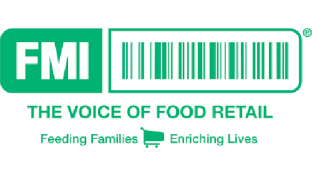Grocers Should Prioritize Center Store, Private Label for Success
A new report from private-brand development firm Daymon is highlighting the ways that retailers can build out their center store offerings to drive sales and growth. The report, “Winning in the Center Store,” notes that center-store departments make up 77% of total store sales, offering serious earning potential for successful private-brand strategies.
So how do retailers make the most of the private label opportunity? Stamford, Conn.-based Daymon suggested that the best approach is for retailers to treat private brands as true brands, rather than building a private label offering focused on being a follower product or simply a lower-cost version of a national product.
“Consumers want brands and products that are unique and tailored to their diverse needs — and will gladly go elsewhere if you don’t deliver, especially in center store, where the competition is fierce both within and between channels,” the report said.
Three things to keep in mind when building a private-brand program are:
Value beyond price
Price still matters, but if a product is truly differentiated and offers consumers something they can’t just as easily find in another store, that can make a bigger impact than delivering on price alone. Daymon suggested a differentiated, curated assortment that spans the center store in key departments and categories.
Offering exceptional quality
Stringent quality assurance processes can ensure consistency in developing private-brand products. Daymon noted that 73% of shoppers of best-in-class retailers said that their private brand program’s quality is the same as or better than that of a national brand.
Providing an engaging store experience
It's not enough to simply put a product on a shelf and expect it to sell. Seventy-one percent of consumers who shop best-in-class retailers said that the retailers’ private-brand programs feature multiple touchpoints throughout the box.
Additionally, the report noted that there are three phases to building a solid private-brand offering: education, encouraging trial, and making associates into advocates for the private brands, particularly given the frequency of their interaction with customers.
“The most successful retailers have built an internal culture that creates passionate advocates who are proud to promote private brands,” the report said. “This, in turn, empowers employees to take creative action to champion private brands with shoppers.”
Daymon posits that private brands can offer retailers a real point of differentiation, particularly as 98% of national-brand assortments are the same across retailers. Additionally, much of the battleground for consumer dollars is in private brands’ favor, with 53% of consumers saying that they shop at a store specifically for its private brand, and private brands possessing a higher penetration in center store (19.1%) while also growing twice as fast as national brands.







